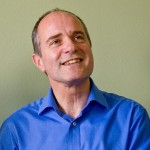 It may be over seven years since the global economy was rocked by the banking crisis but the aftershocks continue to raise questions around the financial industry.
It may be over seven years since the global economy was rocked by the banking crisis but the aftershocks continue to raise questions around the financial industry.I listened recently to a business expert describing what went wrong at the Royal Bank of Scotland (RBS) and found myself fascinated and horrified by the story of the banks demise. It was evident that some of the most basic financial principles were being ignored yet RBS executives were feted as Masters of the Universe by the Harvard Business School. How could it have all gone so wrong?
The rise and fall of RBS makes salutary reading and causes us to wonder how clever and well intentioned people can convince themselves they were doing the right thing even as they were blowing up a company and pulling thousands of others into the wreckage. In the aftermath and post-mortem, the more senior executives were asked whether they knew that they were doing this. It was a question which effectively asked whether these leaders were incompetent or evil. Given their skills and experience how could they not realise they were heading for disaster? And if they did know, why on earth did they not sound the alarm?!
When executives were asked this question around 90% claimed they did not know. However, one section of the bank admitted that they did - but decided to keep quiet. They justified their silence, and therefore complicity, in a variety of ways. Some said that they did what they were told to do. They were simply soldiers carrying out their orders: hit that given target. Greed was evidently a key motivation when hitting the target carried large personal rewards.
Those who said they did not realise their actions were blowing up the bank divided into two. The first group said they truly did not know where this would end; they were genuinely ignorant. The second group admitted they did know but chose to push it down to suppress it, to say nothing, and to get on with the work. They chose to deceive themselves and to deny the reality.
I imagine most of us find it hard to excuse the actions of those who knew but did nothing. How could they look at themselves in the mirror each morning and feel good about themselves? Yet the uncomfortable truth is that human beings like you and me find it all too easy to cheat, lie and steal while seeing ourselves as good people who try and do what is right!
In The honest truth about dishonesty, Dan Ariely of Duke University pulls together research from psychology and neuroscience demonstrating that humans have a remarkable capacity for doing this very thing. We are apparently well suited to what is termed cognitive flexibility, readjusting reality to increase our sense of happiness, or reduce our sense of unease or disquiet. This quality, which is linked to our brains architecture and may be part of our evolutionary inheritance, enables us to suppress the unpalatable truth about our behaviour and continue to think well of ourselves.
Arielys research certainly adds contemporary insight to an ancient biblical axiom that the heart (sometimes translated the mind) is deceitful above all things. So is there anything that can preserve us from descending into ever greater deeper dishonesty and flag up what is happening? It seems there is our soul.
More than conscience and resisting easy definition, in Judeo-Christian understanding the soul is the most significant dimension of our humanity. It is the core and indicator of who we truly are, to be guarded and cherished more than anything else. Jesus asked the crowds, What does it profit a person to gain the whole world and lose their soul?
In his book
Soul keeping, John Ortberg notes how people refer to themselves as falling apart at the seams or struggling to hold everything together and sees this as a sure sign that all is not well with the soul. It could be due to not tending to our physical needs, for example by over-riding our bodies need for rest and sleep. It may be a result of either ignoring or indulging our emotional life, our mental wellbeing, or our social needs. More significantly, as we ignore, push down, excuse or justify increasingly obvious incidences of lying, cheating and stealing our character will begin to disintegrate.
Social scientists speak of the what the hell effect to describe when an individual abandons all semblance of restraint around a given behaviour. In the case of RBS it seems like this happened to an organisation they too can have healthy or sick corporate souls.
Those who remember the Warner Bros cartoon may be carrying around what Ortberg calls the Daffy Duck picture of the soul. Whenever Daffy died a wispy shadow of the duck could be seen to fly heavenwards! If this is your image, this is a good moment for a rethink. Paying attention to the health of our soul is never wasted. If RBS employees had done this a great deal of pain would have been spared and greater happiness achieved.
For myself, I regularly need to ask a diagnostic question, Is the work I am doing for God destroying the work of God in me? I hope you can find a good question for your own soul check.
+ Lee
July 2015